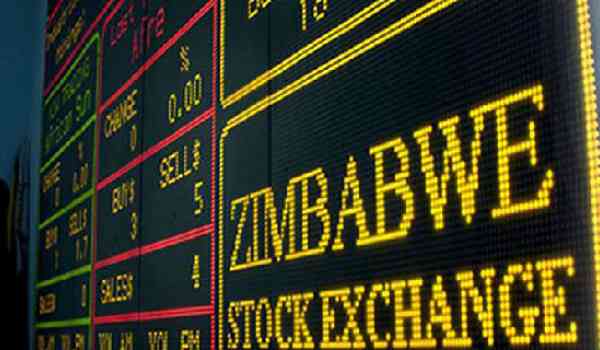
THE Zimbabwe Stock Exchange (ZSE) is an avenue for efficient capital mobilisation and allocation through domestic and foreign portfolio investment in public entities.
In Zimbabwe’s financial system, there are two interest rates, the lending rate, that is the cost of capital or borrowing and the deposit rate, that is the rate of return on savings.
Block et al. (2014) are of the opinion that the stock exchange is a vehicle of providing liquidity in the economy, promoting efficient capital allocation. Stock markets and interest rates influence economic growth because of their direct relationship with savings and investments in the economy.
The interest rate plays a great role in portfolio determination. According to the desired portfolio allocation theory, investors want to maximise their returns in the short run and the interest rate will determine their portfolio allocation between capital markets and money markets.
When the interest rate is low and inflation is on the rise, investors will seek safe custody on the capital markets. How such movement of capital between money and capital markets affects the performance of the stock market remains a grey area, which has not been touched especially in the context of Zimbabwe`s financial markets.
The practice of share trading in Zimbabwe (then called Rhodesia) began in 1891 with the first stockbroking firm being set up (ZSE, 2010). The firm acted as an intermediary for settlers, who wanted to buy shares on the Johannesburg Stock Exchange and the London Stock Exchange (Chakasimango, 2017).
The ZSE is the backbone of country’s capital market with a history dating as far back as 1894 (Securities and exchange commission of Zimbabwe).
It is one of the oldest and highly diversified exchanges in Africa given listings spanning across all key sectors of the economy.
- Stop clinging to decaying state firms
- Piggy's Trading Investing Tips: De-risking mining projects
- Chance to buy 'undervalued' counters: FBC
- Zimbabwe's capital markets collapse
Keep Reading
The Exchange automated its trading system on July 6 2015, thereby bringing manual trading system to an end ( Gambanga ,2017).
However, access to the Automated Trading System still remained limited to the stock brokers in terms of both, trading and real time viewing rights. In order to extend access of real time Exchange information to the general public, the ZSE introduced the View Only Terminal (VOT) on February 8 2017 (Gambanga, 2017).
A VOT is an electronic platform that only gives investors viewing rights to ZSE trading as it takes place through the Automated Trading System.
Trading rights to the Automated Trading System, however, still remain limited to stockbrokers only as the members of the exchange (Gambanga, 2017).
The ZSE has an interesting trading and performance history. Despite Zimbabwe operating under a hyperinflationary environment from 1998 to 2008, the bourse was the best performing exchange in terms of the Index gains as evidenced by the gains on the ZSE main stream index in spite of the fact that there was no real production taking place nor consumption ( Mahonye, 2014).
Some have attributed this to the Fisher effect whereby during inflationary periods there is increased participation on stock exchanges, which later translates to good performance as evidenced by increased year to date gains on the Indices and overall market capitalisation of the stock exchange (Mandishara, 2014).
Stock exchanges or equities are used as a hedge against inflation because share prices adjust positively to the inflation rate and they preserve their monetary values.
After adoption of the multicurrency system in 2009, the bubble experienced during the hyperinflationary period burst because fundamentals did not support the increase in stock prices.
However, with passage of time, adoption of the multi-currency system stabilised macroeconomic variables such as inflation, leading to rising investor confidence and again an upward trend in performance of the ZSE.
One argument put forward is that adoption of the United States dollar (USD) as the reference currency for trading eliminated currency risk, hence, giving ZSE a greater comparative advantage in terms of receiving Foreign Portfolio Investment as compared to other African exchanges.
For example, foreign participation increased by 38% (ZSE) from 2009 to 2015 ( Mpofu, 2016). ZSE stabilised as real production was now starting to increase and the equities were now backed by real activity and production from the local firms, implying greater output and profit from the local firms.
- Nyatanga holds a Bachelor’s degree in Banking and Investment Management from National University of Science and Technology —+263 784 909 184 or blessnyatanga@gmail.com







